The benefits of electric vehicle fleet charging solutions
In 2023, electric vehicles (EVs) are continuing to increase in the market. For fleet operators, EVs not only help to promote environmental protection, but also improve efficiency and reduce operating costs. EVs as a new mode of transport offer specific advantages for managing future EV fleet charging solutions.
1. Cost savings:
One of the advantages of EV fleet charging solutions is their cost savings. Electric vehicles are up to four times more efficient than diesel and natural gas engines and can provide significant savings on fuel costs. Fuel costs are a major operating cost for traditional fleets, and by replacing fuel with cheaper electricity, EVs can save a lot of money in the long run.
2. Environmental sustainability:
EV fleet charging solutions help reduce carbon emissions and air pollution. EV fleets enable zero emissions during transport and are a powerful step towards environmental sustainability. EV fleet operators not only reduce their carbon footprint, but also demonstrate the environmental value of their organisation, which helps to improve their reputation.
3. Improve fleet management and operational efficiency:
Advanced EV fleet charging solutions integrated with fleet management systems can help fleet operators better manage their fleets. Fleet managers have real-time visibility of charging data and fleet status through the management system, enabling decision makers to optimise routes, schedule maintenance efficiently and ensure the fleet is running at peak efficiency.
4. Access to discounts and policy incentives:
Discounts and incentives are available to EV fleet operators. From tax credits to grants and subsidies, these incentives significantly offset the initial costs of transitioning to an EV fleet. Additionally, as environmental regulations become more stringent, owning an EV fleet allows businesses to comply with future standards and avoid potential penalties and restrictions. For example, Pacific Gas and Electric Company's (PG E's) EV Fleet programme offers discounts for medium and heavy-duty fleet EVs. For example, transit buses, forklifts, school buses, local delivery trucks, and more can receive up to $3,000–$9,000 per vehicle in rebates.
1. Cost savings
EV fleet charging solutions offer significant fuel cost savings
2. Environmental sustainability
Helps reduce carbon emissions and air pollution
3. Improve fleet management and operational efficiency
Help EV fleet operators better manage their fleets
4. Access to discounts and policy incentives
Receive discounts and incentives to reduce costs
Choosing the right EV fleet charging solution
As businesses recognise that EV fleets are more environmentally and economically efficient than traditional fleets, they are starting to look for the right EV fleet charging solutions.
A tailored EV fleet charging solution can help fleet operators to manage their fleet easily, reduce costs and adapt to future developments. Therefore, selecting the right EV fleet charging solution is critical.
Assess your EV fleet needs:
Before diving into EV fleet charging solutions, a thorough assessment of your fleet's needs is required. Consider the types of vehicles in your fleet, daily use patterns, and the future volume of your EV fleet to plan the best EV charging points. In addition to this, you need to consider whether your fleet has a need for fast charging.
There are two types of EV chargers: AC EV chargers and DC EV chargers.AC chargers (level 1, level 2 EV chargers) typically have a frequency of 50 Hz or 60 Hz, and the current changes direction (that is AC) several times during a cycle. DC chargers, on the other hand, provide constant current and voltage and have faster charging speeds. Your fleet's needs will affect the type and number of EV chargers, so properly assessing your EV fleet needs can help develop the right EV fleet solution.
Choose the right EV charger:
Different EV chargers have different power and charging speeds, so you need to choose the right EV charger for your fleet's daily operations. If the fleet can focus on charging during longer non-operational hours (e.g., at night), you can choose some of the more economical level 2 EV chargers (AC EV chargers). The actual speed of the level 2 depends on the battery capacity of the EV and the power of the charger, and in general, it may provide an electric range of 20 to 40 miles (32 to 64 kilometres) per hour. As an example, if an electric vehicle has a 60 kilowatt-hour (kWh) battery and uses a 22 kW Level 2 charger, charging may take about 3 hours.
If your fleet needs fast charging or to prepare for emergency charging, you'll need level 3 EV chargers (DC EV chargers), which, as mentioned above, charge faster than AC EV chargers and can provide 100 miles (160 km) or more of range on an EV charge in less than 30 minutes.
Smart charging and fleet management systems:
The integration of smart charging and fleet management systems improves the efficiency of EV fleet management. It provides EV fleet operators with an innovative solution that allows real-time monitoring, data analysis and remote management. The smart charging feature enables better energy management and reduces power costs by charging during off-peak hours.
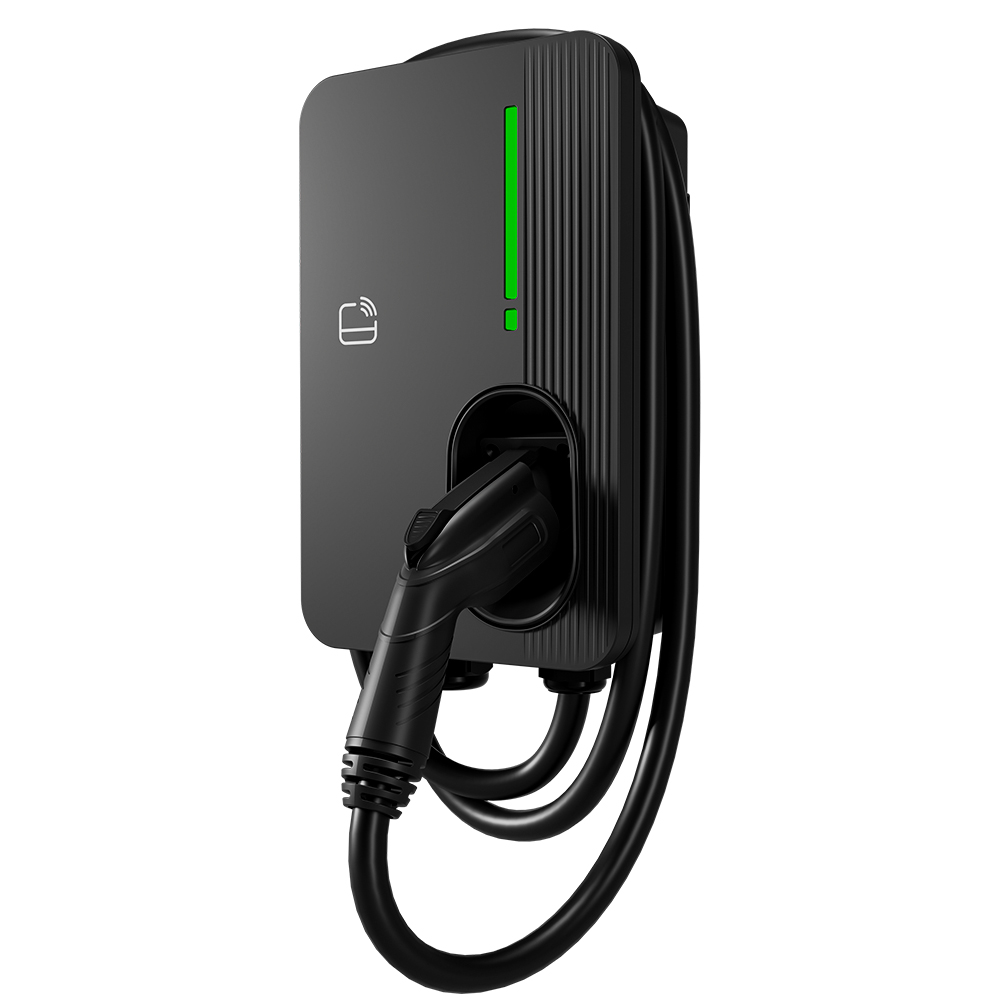
Maximize fleet efficiency with this high-performance EV Charger, designed to deliver up to 11.5 kW (48A) of power.
√ Engineered for fleet efficiency
√ Advanced plug & charge technology
√ Ocpp self - adaptive integration
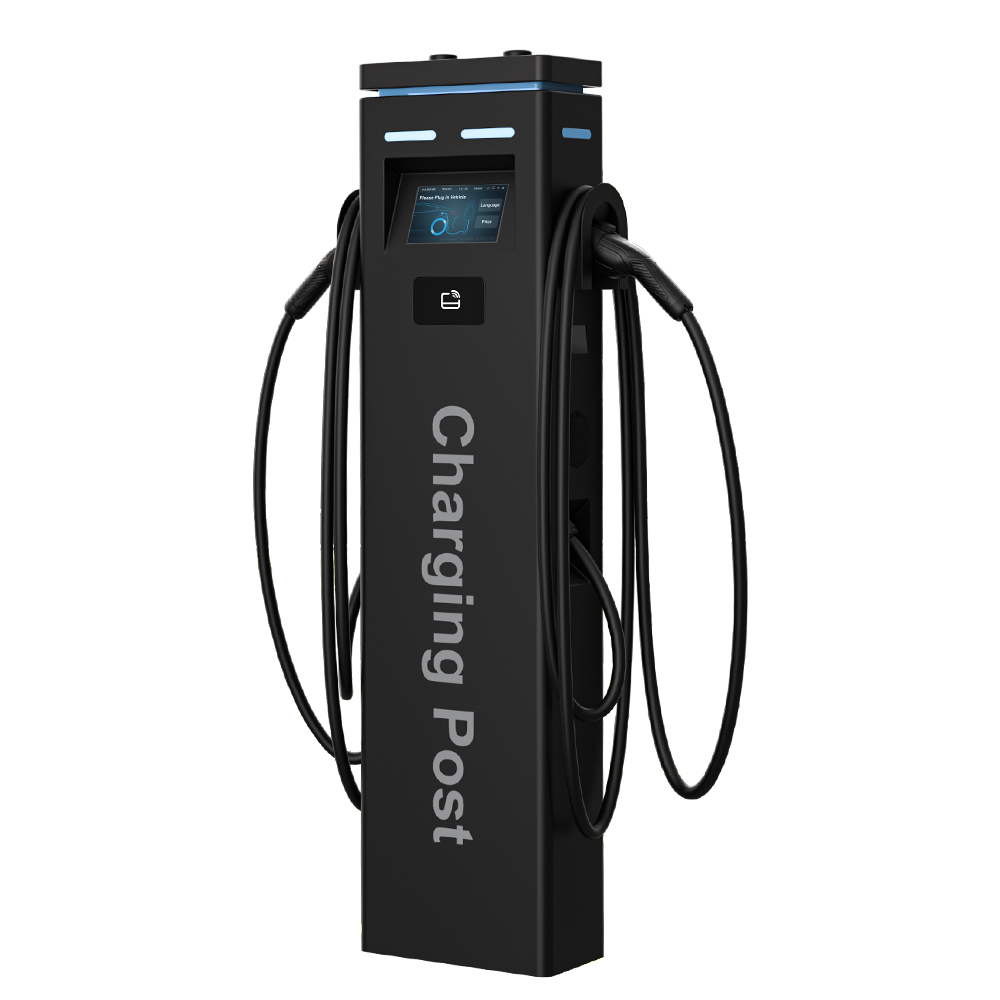
Joint EVM007 with dual charging output options of 2 x 7kW and 2 x 22kW, this charger meets the diverse needs of electric vehicle users.
√ Dual charging output
√ Lectrical safety protection
√ Smart load managment
√ User-friendly design
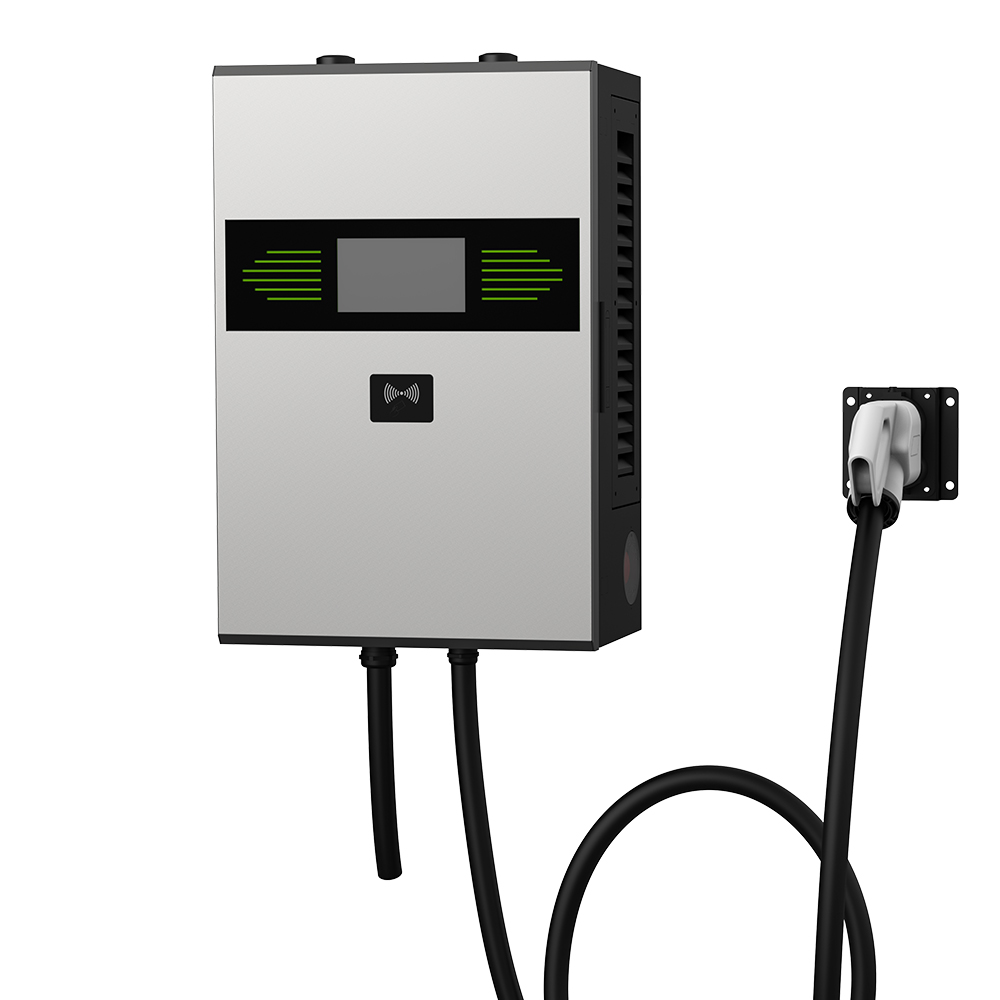
The EVCD100 30kw 3-phase DC fast charger provides fast charging for users.The EVCD100 30kw comes with a 7" touch LCD, supports Plug & Play / RFID / QR Code user authentication, and complies with CCS2 charging standard.
√ Pull-out power module, easy to maintain.
√ 200-1000V of wide range to charge various EVS.
√ Widely used for home, malls, fleets, multi-family, and so on.
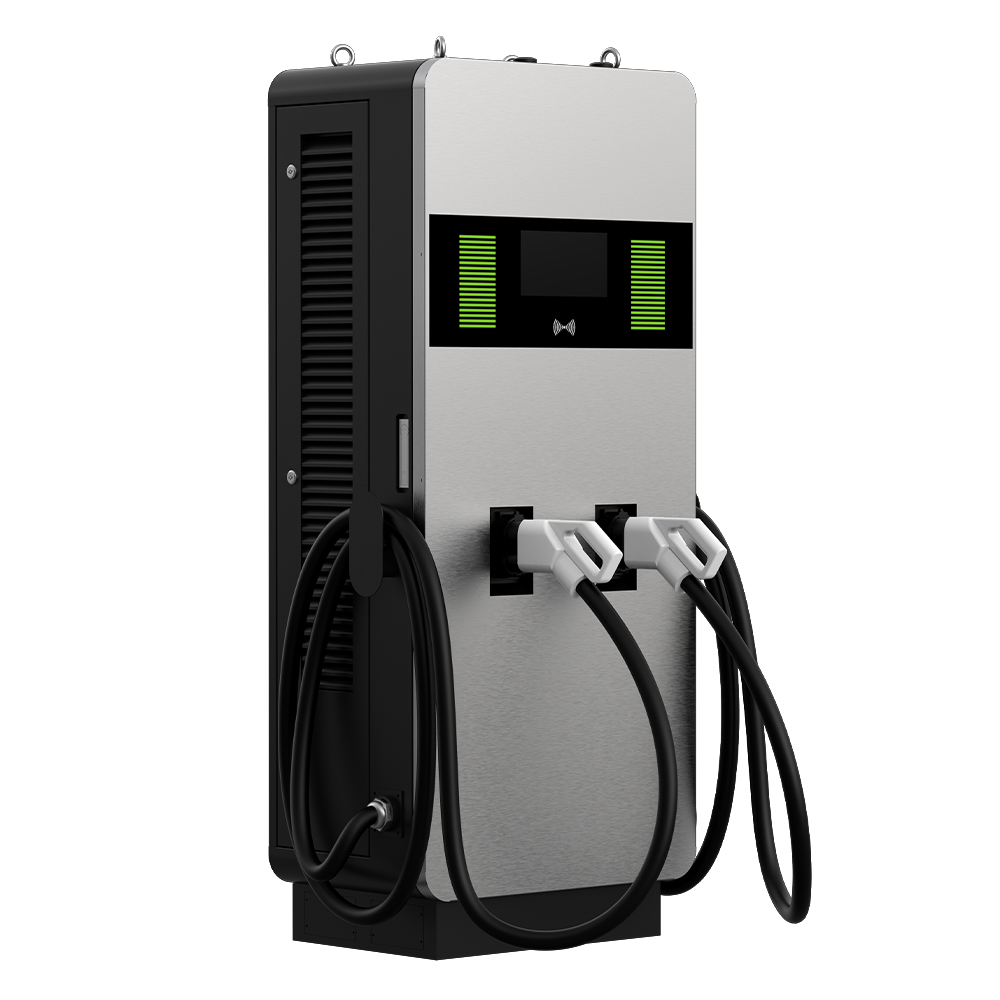
The EVD100 180KW supports DC fast charging (DCFC), allowing electric vehicles to be fully charged in a short time.The Joint EVD100 180KW 3-phase EV charger comes with a 10-inch touch screen and can be connected by Ethernet, Wi-Fi, and 4G.
√ More than 96% power efficiency.
√ Supports smart power sharing.
√ 200-1000V of wide range to charge various EVS.
Learn more about EV charging
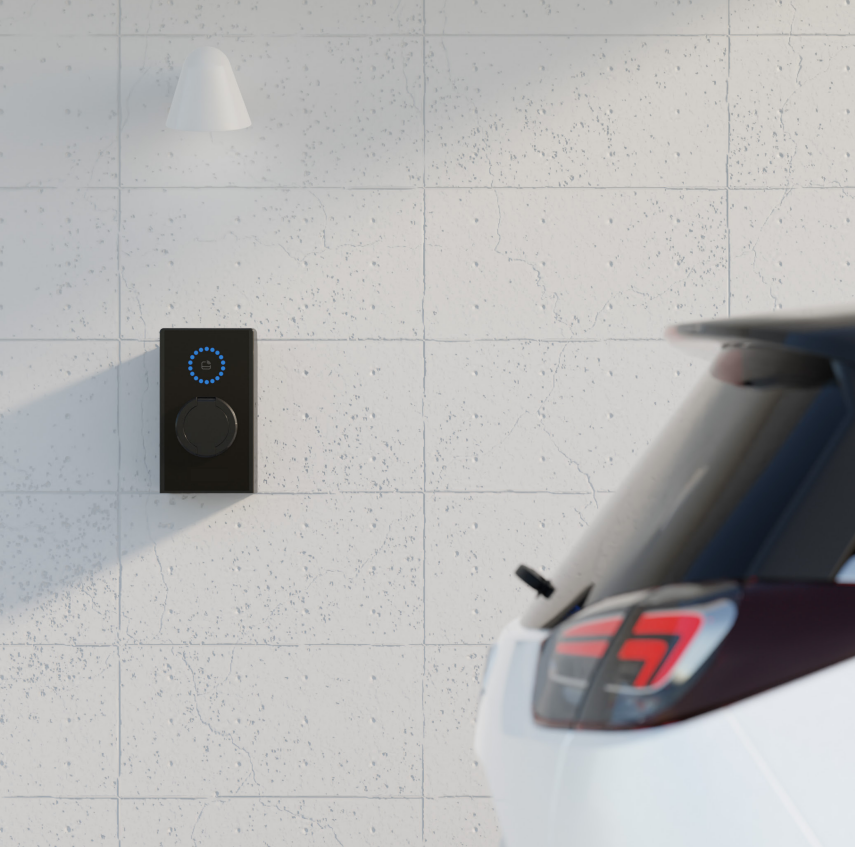
Do I need two EV chargers at home?
This blog helps you make an informed decision for your home charging needs by analyzing the features and benefits of dual-port electric vehicle chargers

Commercial vs Home EV Charging Stations
This blog will talk about the benefits of installing electric vehicle charging stations around the basic knowledge of commercial electric vehicle charging stations and home EV charging points.
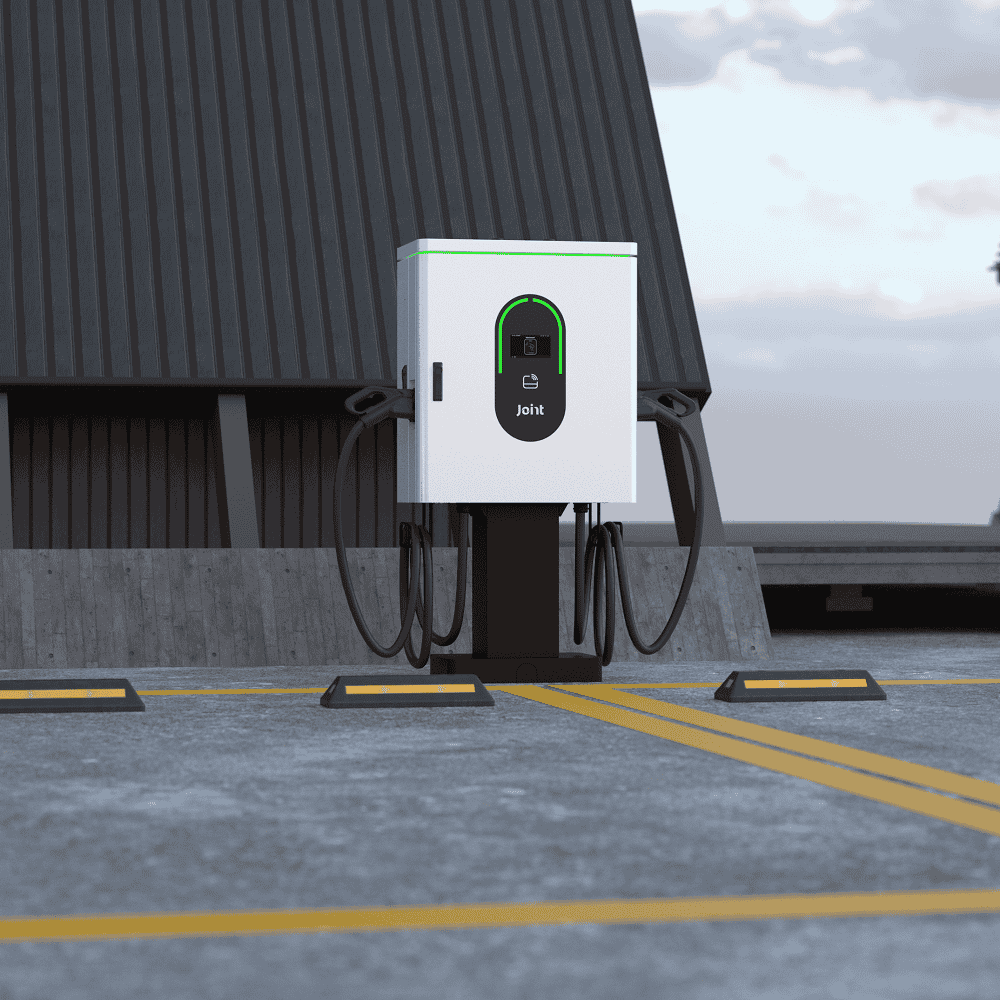
Can I save money after owning a home EV charger
Electricity costs less than fuel, after installing a home electric car charger, we can easily charge at home to save fuel costs.
